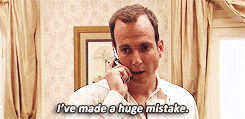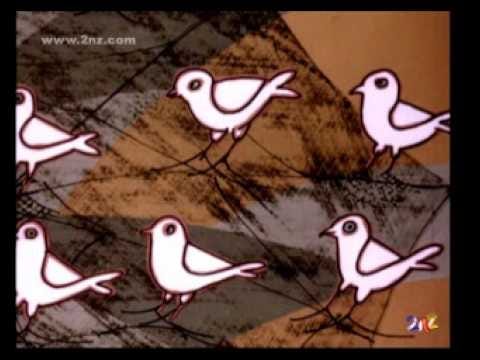Last month, my mother and I called each other thirty-two times.1 As a standalone datapoint, it is a respectable number. A ritual of daily phone conversations implies healthy and vibrant communication between parent and child, both regularly updating each other about notable developments in their lives.
I wish that were the case.
On average, the phone calls lasted two-and-a-half minutes. The longest call was around eight minutes. Over the course of January — with all thirty-two calls put together — I spent a little over an hour talking to my mother. This was a fraction of the time I spent having brunch with my friends, in calls or meetings with colleagues, or being stuck in traffic. When we did speak, our conversations were perfunctory and staid. Beyond the queries and bromides — Is everyone well? No, I don’t have a cold — there wasn’t much else to say.
The well has run dry for a while now, and the decline began with that odious question: What did you have for dinner?
When I moved to Mumbai in 2010, I would call my mother at least twice every day: first, in the morning or at lunchtime, and then later, when I returned home from work at night. I did not know it then but our paths had started diverging, the rhythm of our days becoming so different so as to be discordant. I was in a new city, in a new home, in a new job. She continued to inhabit the old space and time — albeit without me loitering around the kitchen, nagging her about the dinner menu.
When I think about it now, I realise I did not have the vocabulary to describe my new life to her. I could not begin to give her a sense of the stresses at work, the responsibilities of running a household, the distress of role-playing an adult. (The irony being that she’d spent a lifetime doing the same things, and would likely have not only understood my plight but offered sterling advice. Unfortunately, we always think our predicaments are unique.) And so, I stopped trying. It was easier to tell her everything was fine in the office, than to admit I was worried about an email where I’d meant to say ‘invest’ but had instead typed ‘incest’.2
But she never lost interest in my life. She was ever eager to hear about my day, my flatmates, and my latest meal. The last question would drive me insane. Here I was, trying and failing to find ways to tell her about the frisson of discovering freedom and the enormity of my experiences in Mumbai, and all she wanted to know were the banal details of what I’d eaten. It was infuriating. I’ve eaten food, I would mutter in response — never realising the question was just a swing of the ice axe to gain some purchase, find some toehold to help her scale the walls I’d built up.
This was uncharted territory for both of us. For two decades, we had lived in harmony. Being off-key, was not our vibe.
In 1998, a Hollywood movie was making waves in India. There was this one scene in particular — where the red-headed heroine tells the boyish-looking hero, I want you to draw me like one of your French girls — that had captivated the imagination of every adolescent at my all boys’ school. Some had come very close to witnessing the iconic scene. Their local cable operators were enterprising folks who had secured ‘unofficial’ copies of the movie, and on a Sunday evening, everyone in the neighbourhood had settled in front of their televisions to experience this global phenomenon. Unfortunately, when the pivotal moment arrived, the kids were ushered out on some errand, robbing them of the opportunity to admire Jack’s pencil work.
I was eleven when my mother took me to watch Titanic at the Globe Theatre, near New Market, Kolkata. Some people had cautioned her about the racy bits in the movie, but she didn’t care. She just wanted to watch an internationally-acclaimed film with her son. I suppose she had faith in her convictions — and the Indian censor board. Her trust in the latter was justified.
The cuts mandated by the CBFC made a hash of the scene, but even the tattered remains were too much for me. As Rose reposed and Jack sketched, I ducked under the seat, pretending I had dropped a piece of gum. I resurfaced, my ears flaming red, only after Rose was robed.
Our bonhomie survived my puberty, too. I am tempted to concoct tales of teenage tantrums, but as readers of this newsletter can attest, in my reportage I am committed to fidelity. I was then, as I am now, vanilla AF. A flight of doves would’ve had more rebellious instincts than me. There were few hormonal outbursts and fewer parental clashes.
My mother knew all about my comings and goings, as I did about hers. I would often accompany her when she visited her friends, and her laissez-faire approach to parenting, not to mention her culinary wizardry, made my home the venue of many sleepovers. The minutiae of our lives was shared knowledge. In fact, I was the dolt — it is embarassing to even admit to this — who told his mother about his High School crush, and shared with her the details of his first date.
Now, when she asks who I went to the movies with, I tell her, Oh, just some friends. You wouldn’t know them.
For many years, I put the blame on my work. When deadlines dissolved days into chaotic blurs, there was little time left for conversations with people two thousand kilometres away. And in the periods of calm, the exhaustion and lethargy strangled my ability to pay attention. I can’t talk now, I am in office, I would tell her — or, I am too tired, let’s chat about it some other time. The same refrain, repeated over days and weeks and months. It would be different if I had more time, I would tell myself during moments of contrition. Perhaps I knew even then that I was kidding myself.
Since I’ve switched roles at work — to reclaim my time and reorient my life — there has been negligible increase in the time I spend talking to my mother. Only the periods of my parents’ ill-health, which seem to recur more often with every passing year, snap me into alertness. In those few days, I want to know everything, learn every aspect of their domestic routine. Take rest, don’t forget your medicines, I’ll visit soon — all of me is available to them, but only for a while.
Earlier this week, she called me when I was working on this essay. After a minute of distracted small talk, I told her I was busy and would call her later. Sure, she replied immediately. It took me a few minutes after I’d hung up to realise I had not spoken to my mother because I was too preoccupied writing an essay about how awful I feel about not speaking to my mother.
In the world of business management, there exists this notion of the ‘knowing-doing gap’ that can afflict corporations. As this article explains, this gap:
….can often be traced to a basic human propensity: the willingness to let talk substitute for action. “Between the conception / And the creation / Falls the shadow,” T.S. Eliot wrote in “The Hollow Men,” his great poem about human inertia…. When confronted with a problem, people act as if discussing it….and hashing out plans for action are the same as actually fixing it. It’s an understandable response—after all, talk, unlike action, carries little risk. But it can paralyze a company.
It can also paralyse a relationship.
I know about the problem, I know I need to fix it — but I feel incapable of taking any steps to implement a solution. Doing the real work of changing the way we communicate is far too daunting an enterprise. Where would I even begin? After so many years spent apart, do we have any common ground? Can we ever return to the seamless understanding of the years gone by? And is it reasonable or natural to harbour such expectations? Isn’t change, and an erosion of all that was once familiar, inevitable? Should I even try to recreate the past?
I don’t know. But I have this nagging feeling I should still try. And now that I’ve adopted this rather indirect way of telling my mother about this situation, I suppose she will try as well.
My father does not own a mobile phone. But that is not the only reason we rarely speak.
True story.









Magnificent. You're writing for the ages, not just your subscribers now.
Tugged at the heartstrings. Wish you and your mother the very best.